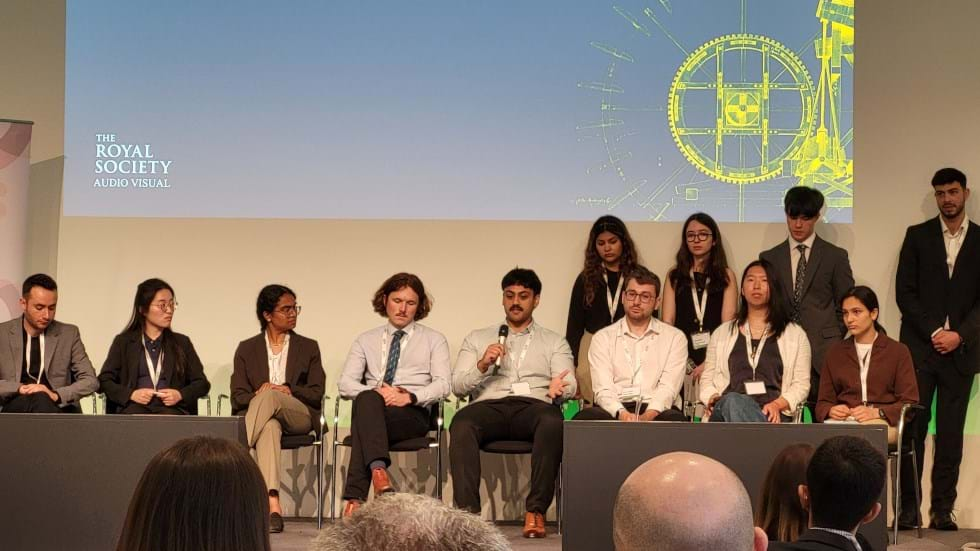Young engineers call for more industry support at the 2025 YEAIS
Aniqah Majid joins the innovators competing to take home an IChemE award
MORE than 100 young engineers, students and industry leaders packed the historic Royal Society in London in June for the 2025 Young Engineers Awards for Innovation and Sustainability (YEAIS) showcase – one of five global events hosted by IChemE to spotlight the next generation of chemical engineers.
From hydrogen production to vaccine cooling systems, attendees explored cutting-edge solutions to global challenges and celebrated the power of fresh thinking in engineering.
“The chemical engineer’s toolbox is ever-expanding,” said Gayatri Sundar Rajan, a finalist in the clean energy and climate action category. “We as chemical engineers have the agency to bring about change with the expertise we have accumulated from school, university and working in industry.”
This year’s YEAIS goals aligned with the UN Sustainable Development Goals (SDGs), including clean energy and climate action; water and sanitation; and food, health and wellbeing. Entrants in the expanded awards participated in four main categories: undergraduate, postgraduate, early career and schools – the latter open to UK students aged 16 to 18.

Congratulating peers
Among the young engineers and presenters eager to showcase their research posters and findings was student Zhi Ling Chew, winner of the postgraduate prize. She had flown in from Malaysia with her family to present her work on converting biowaste into gel coatings for food preservation.
She said: “I am incredibly honoured by this award, as I was not expecting it at all considering the number of amazing entrants.”
A student at Xiamen University Malaysia, Chew noted that IChemE’s presence in the region was still limited, and attending events like the YEAIS was “really helpful” for connecting with peers and learning more about the profession.
“I found out about the event through my supervisor and took the opportunity as it gave me a chance to share my work with a wider audience.”
Similar thoughts were shared by Sam Sarrafi and Rowan French, graduate engineers from United Utilities who were finalists in the water and sanitation category. As part of a £1.4m (US$1.9m) project with Ofwat, they are exploring how metagenomics – the study of genetic material from the environment – can improve wastewater plant operations.
French said: “Having the chance to present is really helpful for us because you are talking to people who are not your colleagues, so may not already know what you’re talking about. It gives us an opportunity to build on our communication skills.”
Early career category winner Will Ryden had taken his presenting skills a step further by engaging in community outreach, speaking to schoolchildren in Wem, Shropshire, about his wastewater treatment technology and how it could benefit their town.
“It is amazing speaking with local people about technologies which could affect the way they live, you find out quickly that these people are interested and want to know more.”
The graduate process engineer is working with Mott MacDonald and Severn Trent on developing a “reduced footprint” sludge plant called Oxibox, which will separate solid materials from wastewater and improve river quality.
Recent Editions
Catch up on the latest news, views and jobs from The Chemical Engineer. Below are the four latest issues. View a wider selection of the archive from within the Magazine section of this site.




